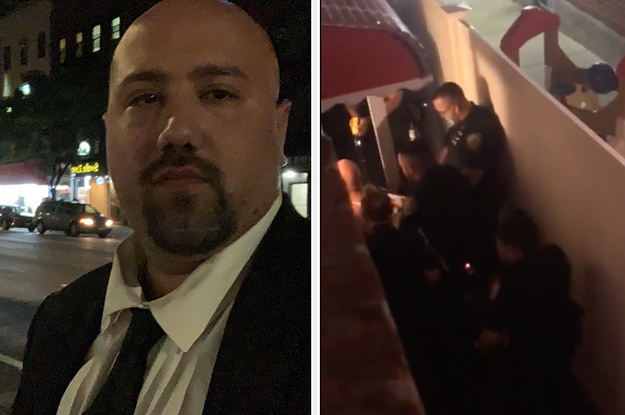Month: June 2020
Drawing inspiration from the 2011 Occupy Wall Street movement, protesters are now vowing to eat, sleep, and protest outside City Hall in Manhattan until the NYPD is defunded.
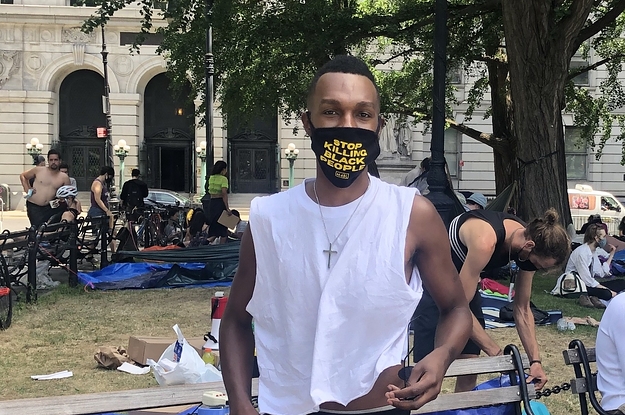

DC’s most screwed up set-of heroes came together in Doom Patrol‘s debut season to critical acclaim, despite being criminally under-watched on the (confusing) DC Universe streaming service. Now, the series is sliding onto HBO Max, which suggests a wider audience under normal conditions and seems optimal now, given that nerds are currently starved for new superhero content at the movies. All of that works in the show’s favor, which should resonate with its unconventional take on superpowered outcasts, and last year, not much felt off limits in terms of strangeness for this show. A giant, talking cockroach that doubles as a doomsday prophet? Sure. A living, breathing, and sentient street named Danny who identifies as genderqueer? Absolutely. And don’t forget about Karen, the most dangerous Crazy Jane sub-personality of all.
If you haven’t caught the first season yet, and you are intrigued, I will endorse that batch of episodes in the strongest-yet-sketchiest way I can imagine in this era of bloated streaming seasons and run times: Doom Patrol‘s debut was so methodically paced, well-written, convincingly-acted, and special-effected that not even the daunting cumulative airtime — 15 episodes, all running nearly an hour apiece — could detract from its quality.
Those are strong words, I realize. It’s also quite something to see a fourth-wall-breaking effort by a post-Deadpool comic-book property that doesn’t feel obnoxious, but Doom Patrol does it. The challenge, then, is for the series to achieve the standard it already set. HBO Max has whittled down the second season to nine episodes, three of which were released to critics. The good news is that this series’ complicated, traumatized souls are still as endearing as they were during their debut.
The slightly worse news is that the second season launches a bit depressingly and less joy-ride-y. That’s actually to be expected, given where the first season finale placed the team: Cliff Steele/Robotman (Brendan Fraser), Larry Trainor/Negative Man (Matt Bomer), Rita Farr/Elasti-Woman (April Bowlby), Victor Stone/Cyborg (Joivan Wade), and Crazy Jane (Diane Guerrero) all learned that mad doctor Niles Caulder (Timothy Dalton) was responsible for the horrible tragedies (and subsequent powers) that befell them. So, they’re disenchanted while struggling to cope, and seeing them wallow in their own self-pity (and this continues even outside of the Niles-betrayal context) is an experience.
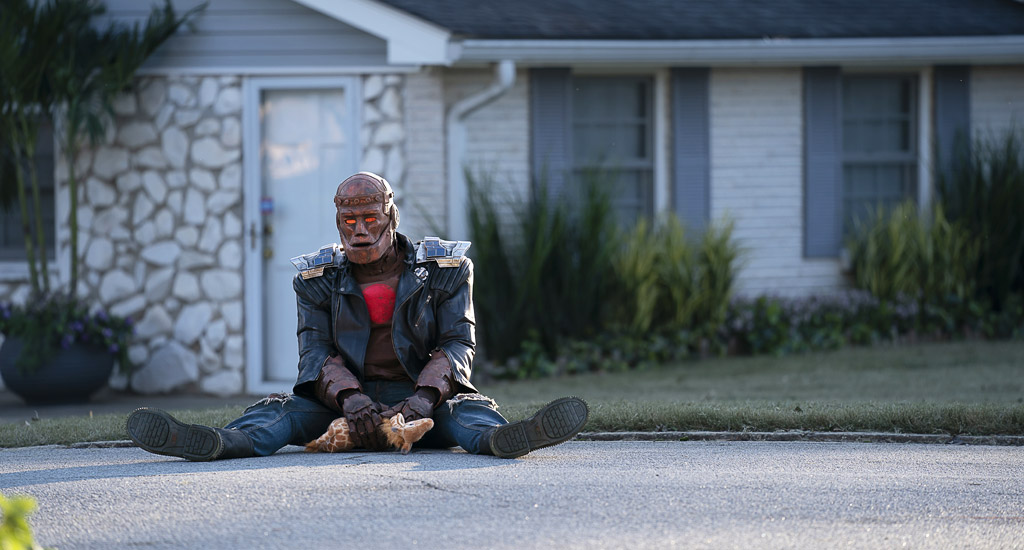
Still, a lot of this disillusion is exorcised through humor. In particular, Brendan Fraser is having an absolute ball while voicing former race-car driver Cliff, who (in mini-form, since the group is shrunken to toy size in the season premiere) works out his rage by dropping enough f-bombs to rival Sam Jackson and beating the hell out of rats. His failingly macho struggles come to a surprisingly poignant place, though, which illustrates the careful, almost precarious balance achieved by the writers. Doom Patrol‘s never afraid to get grubby, and whether its tactics are banal or nuanced, it pushes against political correctness but still strives to land on the right side of history on social issues. That’s the case whether we’re talking about Matt Bomer’s multi-layered portrayal of a gay superhero or Diane Guerrero’s 64-shaded embodiment of mental illness and recovery.
Amid all of the nuance, the show still remembers that comic-book fans want action and entertainment. So, we get some time-travel and, more importantly, some honest-to-god roller skating, and the show pulls out the stops with its adaptation of comic villains (including Red Jack, who fancies himself to be a cross between Jack the Ripper and God) that swirl through the newest episodes. There’s also a reckoning of sorts in the Underground when all of Jane’s personalities decide that a confrontation is in order. Oh yes, we do receive a dose of Karen here.
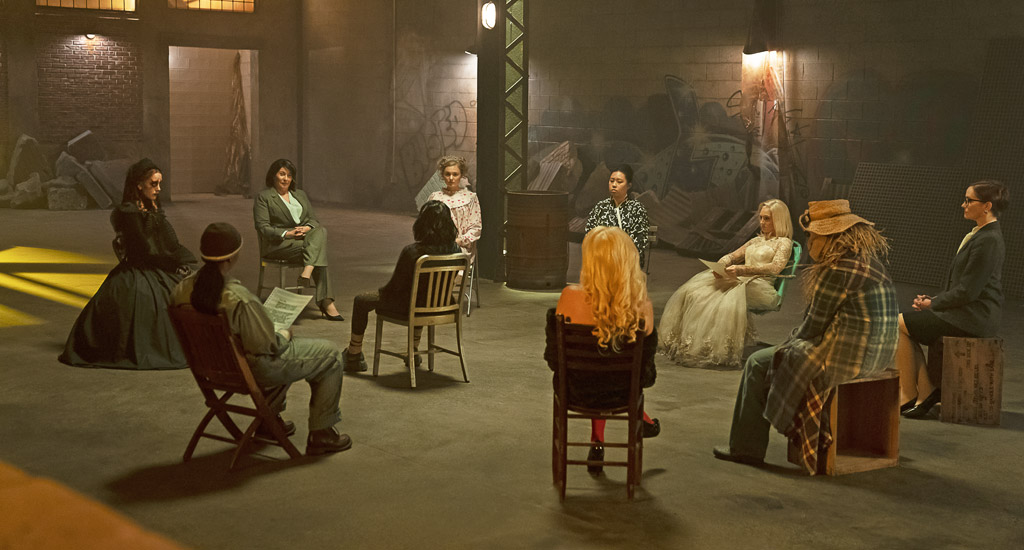
As always, there’s a lot going on with Doom Patrol, which has arguably established itself as the most complex and best superhero series on TV right now (other than Amazon’s The Boys, but that’s more about the dismantling of superhero stories). Here, HBO Max got selective with the DC Universe entries, it seems, and it picked the right one to illuminate. Doom Patrol also accomplishes much of what the current DC movie stable fails to do: feeling fresh and inventive while not shying away from darkness and shadows. This show does so without going “gritty,” and it does not forget that levity is also of the utmost importance.
As this series progresses, those immortal words from Cliff Steele — “I’m not a man. I used to be. I was a different person then. A lesser person” — keep growing more true for these oddball characters. They’re all spawning dimensions, which is literal with Jane, but even Rita’s picking up shades while moving beyond “faded screen siren” and toward getting down to hero-ing. Her developing friendships with Larry and Cyclops bring everything back to these characters finding their way together, and just maybe, becoming a family. We also get to meet the newest group member, Niles’ daughter, Dorothy (Abigail Shapiro), who’s tossing out Wizard Of Oz flavor that isn’t easy to wrap one’s arms around yet. Surely, there’s groundwork being laid here for what materializes later, before the show peeks behind that curtain. In the meantime, it’s time to hop back on the Doom Patrol bus for more of the same raucous ride.
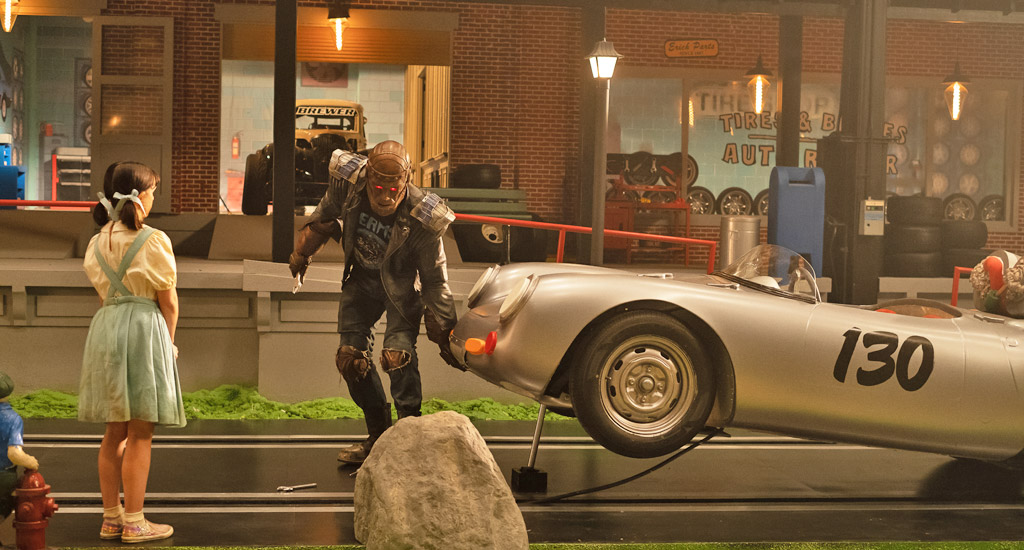
‘Doom Patrol’s second season will drop three episodes on HBO Max on June 25 (with subsequent episodes streaming on a weekly basis).
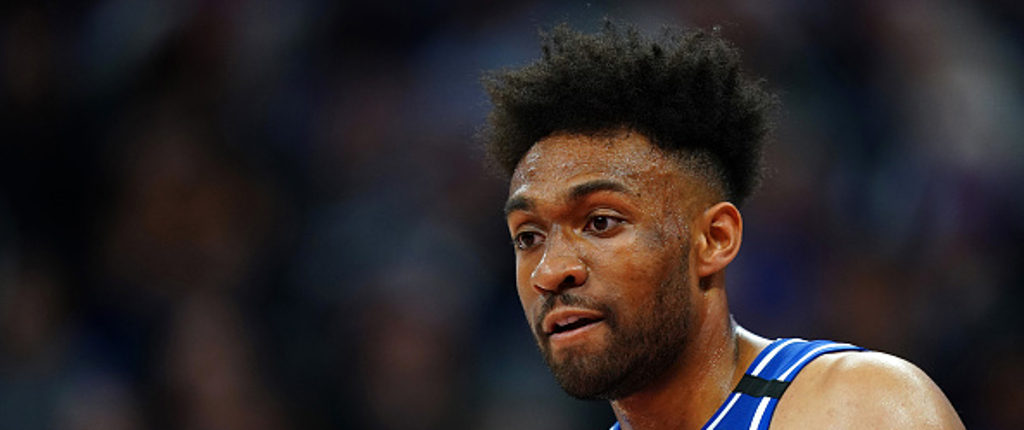
After a more than three-month hiatus amid the global COVID-19 outbreak, the NBA is moving forward with its plan to resume the season at Disney’s Wide World of Sports in Orlando next month. Despite some trepidation among a portion of the players, it appears most eligible players will participate in the bubble league under strict quarantine protocols designed to mitigate the risks.
Only a small handful have announced that they won’t join their teams in Orlando, including Lakers guard Avery Bradley, who is concerned about the health of his son, who suffers from respiratory issues. Others have opted out of playing for a variety of reasons unrelated to the coronavirus concerns.
A couple of players have recently tested positive for COVID-19, though both Nikola Jokic and Malcolm Brogdon plan on traveling to Florida to play out the rest of the season after a period of quarantine. On Wednesday, Kings forward Jabari Parker became the latest to test positive for the virus, although he likewise plans on eventually joining his team in the restart once he is cleared, issuing a statement through the team.
Statement from Jabari Parker: pic.twitter.com/fn0WncpLi8
— Sacramento Kings (@SacramentoKings) June 24, 2020
In recent weeks, players have come together to voice their concerns about the restart, in terms of both safety issues regarding social distancing and the notion that the restart might distract from the Black Lives Matter movement that has gained so much traction in the last month following the murder of George Floyd.
Regardless, the restart is moving forward as planned. While the NBA said Wednesday is the deadline to decide whether they will play in Orlando, with the only repercussion for choosing not to play being a reduction in salary for each game missed, teams are reportedly taking July 1 as the actual final date for decisions to be made.

Throughout human history, older people always complain that the younger generation lacks the common sense and life skills they learned growing up. Then, when the younger generation gets older they judge the one that came after them.
It’s a dance that’s been happening for centuries. However, this time the old folks may be right.
Studies show that younger Americans are incredibly tech-savvy and great at academics but aren’t quite up to snuff when it comes to basic life skills. Studies show they are much more likely to order take out than to cook for themselves.
They also don’t know how to check their tire pressure, sew, make basic home repairs or drive a manual transmission.
So they’re stuck having to pay people to perform basic tasks that they should have learned at some point in their first twenty-some-odd years on Earth.
Parenting coach Oona Hanson and her husband Paul, have decided to reverse this trend in their family by sending their two children, daughter, Gwendolyn, 17, and son, Harris, 12, to Camp Common Sense.
Due to social distancing, the camp has two campers, two counselors and takes place in the Hanson’s home.
The camp has eight themed weeks that include kitchen confidence, anti-racism, DIY, laundry and cleaning, safety and emergency preparedness, personal finance, city savvy, and social skills.
Oona says she teaches the topics to her kids through a mixture of “direct instruction, independent research, and hands-on practice.” They also watch movies that support to the themes to further drive home the message.
The family uses Catherine Newman’s book “How to Be a Person: 65 Hugely Useful, Super-Important Skills to Learn Before You’ve Grown Up” as a basic camp manual.
“I chose to use this book as a guideline because it’s written and illustrated with charm and joy and infused with humor and empathy,” Oona told Today. “It’s not an adult talking down to kids; it’s an adult inviting kids into the world and explaining how you function in daily life.”
The Hansons saw quarantine as the perfect time to teach their kids the skills they always planned to “someday.”
“It always seems like we’re going to get around to teaching them these things ‘someday,'” she said. “There’s that fantasy that before they go to college, they’re going to learn these thousand skills that actually take time to learn and practice. Right now, we have the time it never seems we have to do it.”
Camp days aren’t all work and no play though. The kids still get time for physical activity, arts and crafts, and a little screen time.
The Hansons hope the lessons they teach now will pay dividends over the long haul.
“I’m OK if the kids are rolling their eyes at us now if later they can look back and say, ‘I’m so glad I know how to make pancakes for 12 people.’ That will bring so much joy and connection,” Oona said.
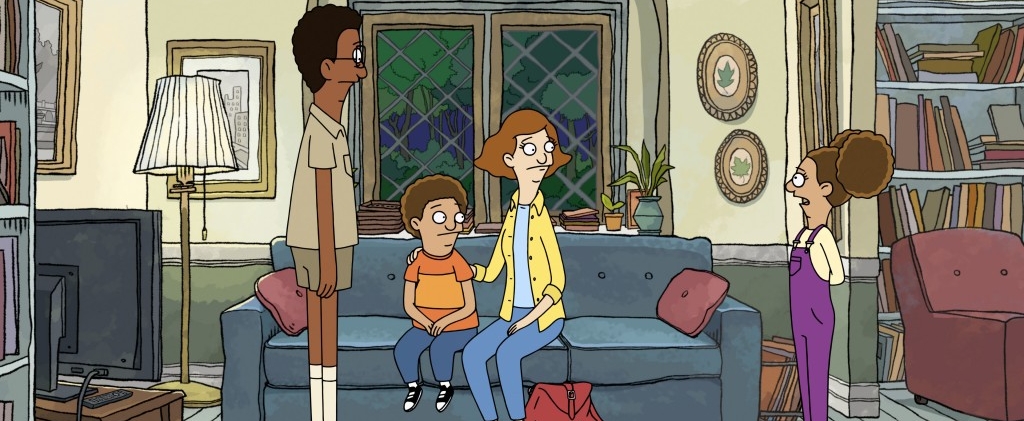
Mere hours after news broke that Jenny Slate was stepping down as Missy, the biracial character she voiced for four seasons (one still forthcoming) of Big Mouth, similar news broke about another animated show: According to The Hollywood Reporter, Kristen Bell will stop voicing Molly, who is also biracial, on Central Park, the new show co-created by Bob’s Burger’s Loren Bouchard.
The decision according to THR, some time in the offing. In a statement, Bouchard and his fellow creative team members, Josh Gad, Nora Smith, Halsted Sullivan and Sanjay Shah, wrote, “Kristen Bell is an extraordinarily talented actress who joined the cast of Central Park from nearly the first day of the show’s development — before there was even a character for her to play — and she has since delivered a funny, heartfelt, and beautiful performance.” They continued:
“But after reflection, Kristen, along with the entire creative team, recognizes that the casting of the character of Molly is an opportunity to get representation right — to cast a Black or mixed race actress and give Molly a voice that resonates with all of the nuance and experiences of the character as we’ve drawn her. Kristen will continue to be a part of the heart of the show in a new role but we will find a new actress to lend her voice to Molly.”
Bell gave her blessing to the re-casting, taking to Instagram to write the following:
“This is a time to acknowledge our acts of complicity. Here is one of mine. Playing the character of Molly on <em>Central Park</em> shows a lack of awareness of my pervasive privilege. Casting a mixed race character with a white actress undermines the specificity of the mixed race and Black American experience. It was wrong and we, on the <em>Central Park</em> team, are pledging to make it right. I am happy to relinquish this role to someone who can give a much more accurate portrayal and I will commit to learning, growing and doing my part for equality and inclusion.”
Even before the Black Lives Matter protests, which were born out of anger over the killing of George Floyd, prompted serious discussions about racial issues in America, there had been major pushback about casting white performers in non-white roles in animation. Hank Azaria stepped down from his lengthy gig, voicing Apu on The Simpsons. And then there’s the character of Diane Nguyen on BoJack Horseman, a Vietnamese character voiced by the white Alison Brie, which prompted creator Raphael Bob-Waksberg to admit he may have made a mistake, saying his intention was to “write AWAY from stereotypes and create an Asian American character who wasn’t defined solely by her race. But I went too far in the other direction.”
(Via THR)

HBO Max’s hipster murder mystery comedy, Search Party, is gearing up to drop its years-in-the-waiting third season this month and because the hiatus has been decades – or just two and a half years but really, what even is time? – we figured fans (and newcomers) might need a quick catch up before the trial of the century begins.
The genre-bending show is a darkly comedic take on the restlessness and emptiness of an entire generation wrapped in a deliciously twisted true-crime saga. Alia Shawkat, John Early, Meredith Hagner, and John Reynolds play a group of millennial Brooklynites caught up in a tragedy of their own making, and each season has followed the group as they try to spin and manipulate and wiggle their way out of the consequences of their shared morally bankrupt existence.
Things look to come to a head in season three with Dory (Shawkat) and ex-boyfriend Drew (Reynolds) facing murder charges with their friends Elliott (Early) and Portia (Hagner) being forced to chose sides.
Now that opening statements are out of the way, let’s get to the facts of why this cult comedy series needs to be your next binge-watch.
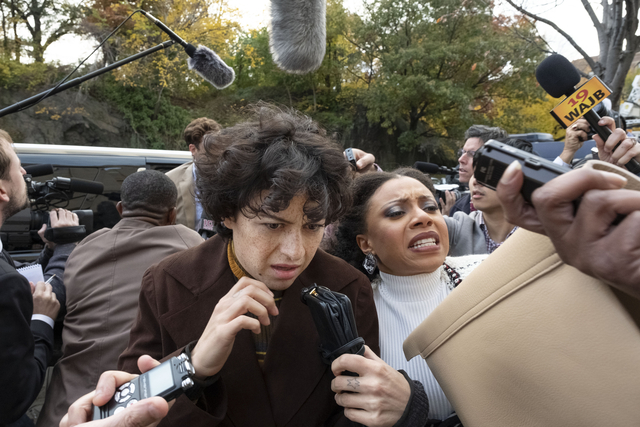
The Case
Each season of Search Party leans into a different genre. Season one took on a murder mystery vibe with Dory and her friends trying to find Chantal Witherbottom. Dory satisfied her true crime itch but at a pretty steep price – she ended up participating in the murder of a legitimate private eye named Keith (Ron Livingston), who she also happened to be hooking up with because … searching for missing girls is her specific kink? We really don’t know.
Season two switched gears as Dory enlisted Elliott, Portia, and Drew’s help in hiding Keith’s body and covering their tracks. Unfortunately, someone got wind of their murderous indiscretion and the story took on a thriller-type tone, with the crew desperately trying to figure out who was blackmailing them.
This leads us to the show’s long-awaited third season – a courtroom drama on psychedelic steroids. Dory and Drew are being tried for Keith’s murder – Drew knocked him a little too hard with a decorative statue after he believed Keith was attacking her. Turns out, Keith probably just wanted to chat about the reward money for finding Chantal but Dory panicked, tased him, and accidentally engineered his death. Instead of just calling the police, Dory, Drew, and Elliott decided that risking Canadian prison was just too terrifying a prospect, so they bought the gaudiest zebra-striped luggage carrier they could find and stuffed Keith’s decaying corpse inside, while Portia, Chantal, and a grumpy Frenchman were getting high in the living room and playing “Johnny Whoops.” (“Johnny Whoops” is, sadly, not some weird sex game.)
Portia was eventually dragged into the mess (proving FOMO really can destroy your life0, helping to bury the body and come up with a false narrative to explain Chantal’s whereabouts. So, though Drew and Dory are on trial for murder here, the whole group is held under a microscope and the cracks begin to show in season three as Dory tries to convince a jury, the public, and herself, that she had nothing to do with Keith’s death.
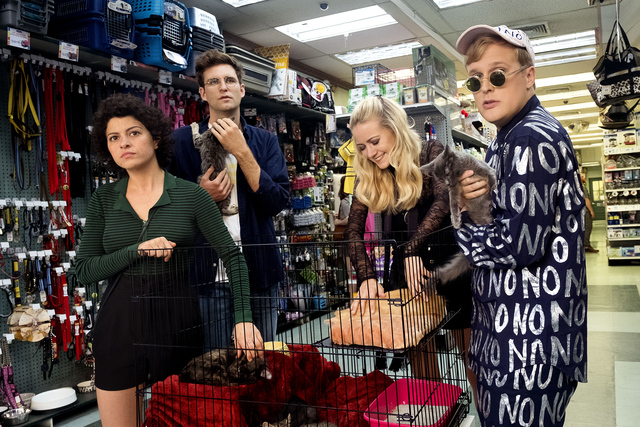
The Criminals
Think of a modern-day Scooby Gang. Now kill Scooby and make everyone else in the group vapid, incompetent, and narcissistic and you’ll come close to understanding the dynamics of the core cast on Search Party. Dory is the de-facto ring leader – a bright college grad who’s unfulfilled with her life as an assistant to a rich divorcee. She goes searching for Chantal – a fellow coed she met literally once before the tragedy – partly because in finding Chantal, she hopes she’ll find herself, or at least find something she’s actually good at.
Dory’s stuck and her relationship with long-term boyfriend Drew doesn’t help things. Drew’s a doormat. He goes to business school. He owns a ukelele and plays it, unironically. Really, there’s not much more to say about him except that he constantly seems to resent Dory’s friend group, and he at least attempts to do the right thing. He’s quickly talked out of it though, which is why he’s now an accused murderer.
Elliott and Portia round out the main crew. Both are equally shallow, fame-obsessed millennials but they share a strange bond with Dory, helping her to hide a body despite the probable repercussions. Portia is an aspiring actress with mommy issues who can’t seem to live up to her family’s expectations or impress them with recurring gigs on crime soap operas. Elliott is a wannabe influencer who once lied about surviving Stage IV lymphoma and nearly scored a book deal because of the ruse. He convinced both Dory and Drew to hide Keith’s body in season two because the optics – a man killing the guy banging his girlfriend with a blow to the back of the head – didn’t look good. Fair enough. He’s also set to be married as the trial heats up so, you know, that’s annoying.
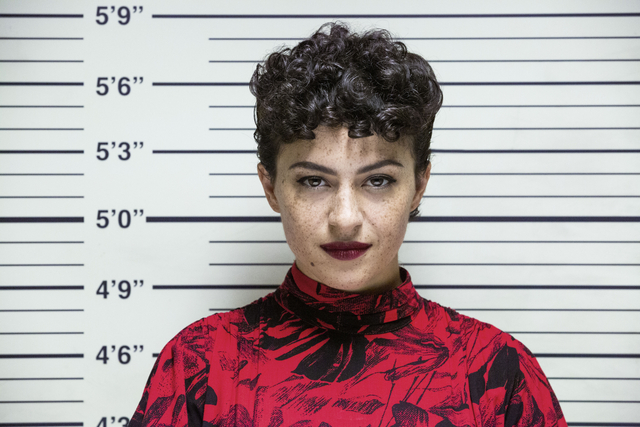
Their Records
Drew, Portia, and Elliott are fairly tame in terms of their criminal exploits. Being a pathological liar isn’t illegal so, while Elliott may be a terrible person for trying to profit off his fake cancer scare, he’s never committed a felony until he helps Dory jigsaw puzzle a body in a carry-on. He and Portia scheme with Dory and Drew to take down their blackmailer in season two, but again, they stay mostly on the sidelines when it comes to the hardcore action.
It’s Drew and Dory who do most of the misbehaving in season two and beyond – breaking into their neighbor’s apartment, attempting to blackmail politicians and shoving mentally unwell women off the Brooklyn ferry. No, really. Dory ends season two by killing another person caught in her web – her next-door neighbor April, who claimed to have a taped confession and threatened to go to the police with it if Dory didn’t give her $500,000. Thin walls. They’ll ruin even the best murder coverups.
To keep April quiet, Dory meets with her on the ferry where, in a fit of rage, she pushes her to her assumed death. It’s not the murder she’s on trial for. But it is murder. So …
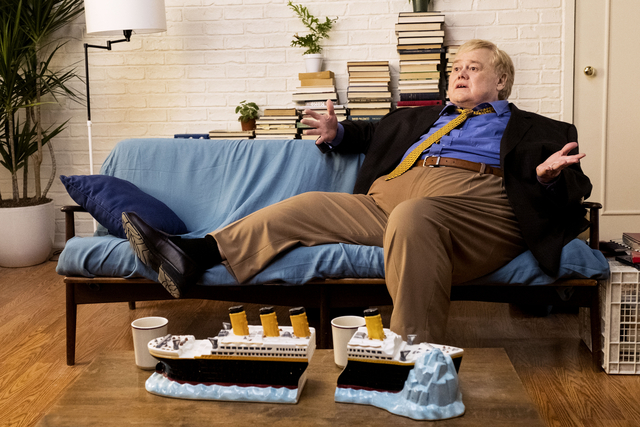
The New Players
One of Search Party’s greatest strengths is its constantly-surprising rotating list of guest actors. That track record continues in season three with Louie Anderson, Michaela Watkins, and Shalita Grant joining the show for a legal showdown that’s fairly ridiculous. Anderson plays Drew’s crusty old defense attorney who comes out of retirement to take on his case and enjoys a good nap wherever he can get it. Watkins plays the District Attorney prosecuting Dory and Drew and doggedly trying to prove what kind of terrible people they are to a public increasingly fascinated by the twists and turns in the case.
But it’s Shalita Grant, who plays Dory’s lawyer – a relatively untested courtroom rookie who scores the job because her wealthy father posts Dory’s bail – who steals the season playing an equally clueless millennial with a different perspective on the case.





